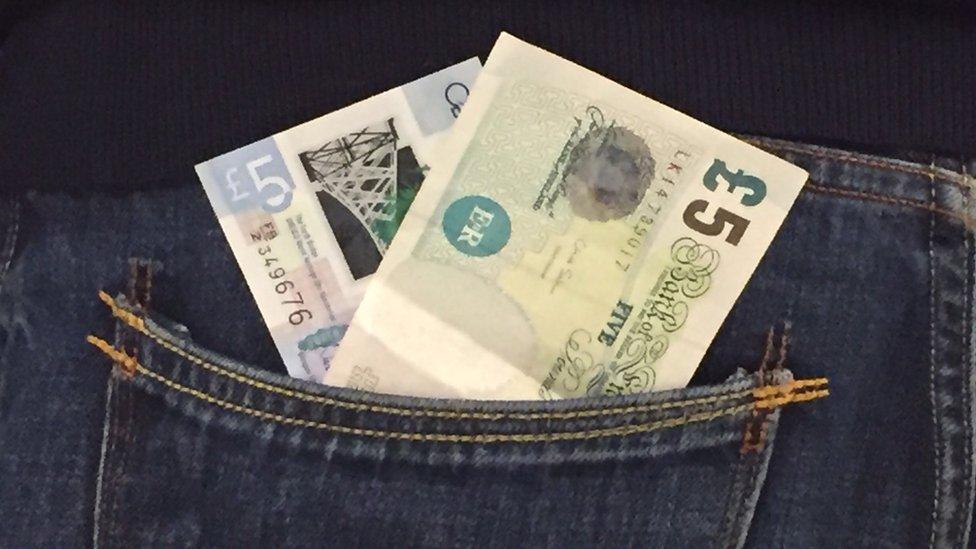New five pound note: Not suitable for vegetarians
- Published
- comments
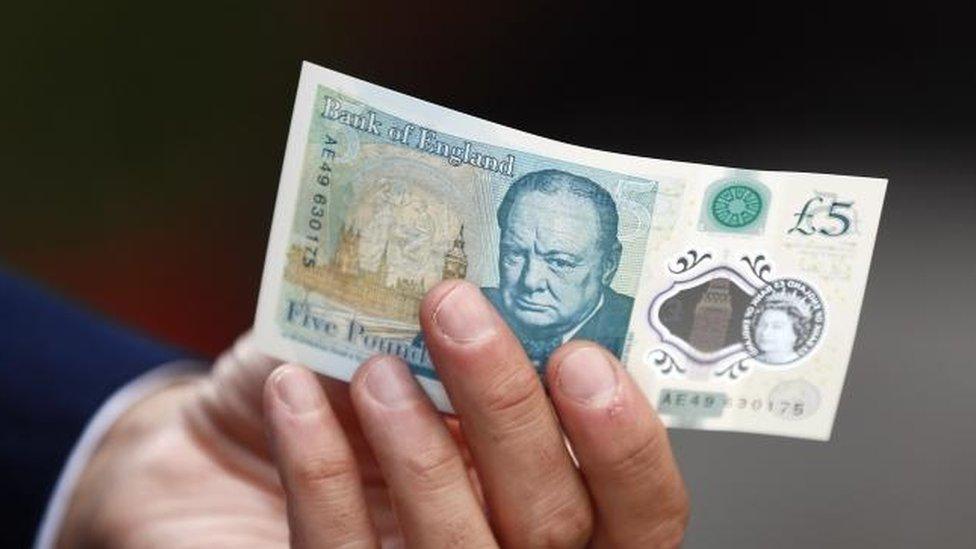
Now suitable for greasing palms
The UK's new fiver has won many fans since it was launched in September.
It's tough. It doesn't tear. You can spill beer on it, put it through the washing machine and it will survive to buy another round.
But one thing it turns out it's not, is fat-free.
Because it turns out the plastic polymer it's made from also contains small amounts of tallow, derived from animal waste products - and some vegetarians are not happy.
Familiar to previous generations as the base for every day staples such as soap and candles, tallow is traditionally derived from beef or mutton (but sometimes pork) at the slaughterhouse or later in the food production process.
'Essence of bacon'
Vegans and vegetarians faced with this revelation have taken to social media to voice their concern and over 40,000 people have signed a petition, external calling for the contents of the notes to be changed.
"We demand that you cease to use animal products in the production of currency that we have to use," the petition reads.
On Twitter annoyed vegetarians and vegans have said it's "not cool" and "disgusting" and asking whether their rights have been considered.
However others have responded with rather more tongue-in-cheek approach, suggesting an "essence of bacon" is desirable in the UK's currency, speculating how many calories a fiver now contains and offering to relieve any affronted vegetarians of their unwanted notes.
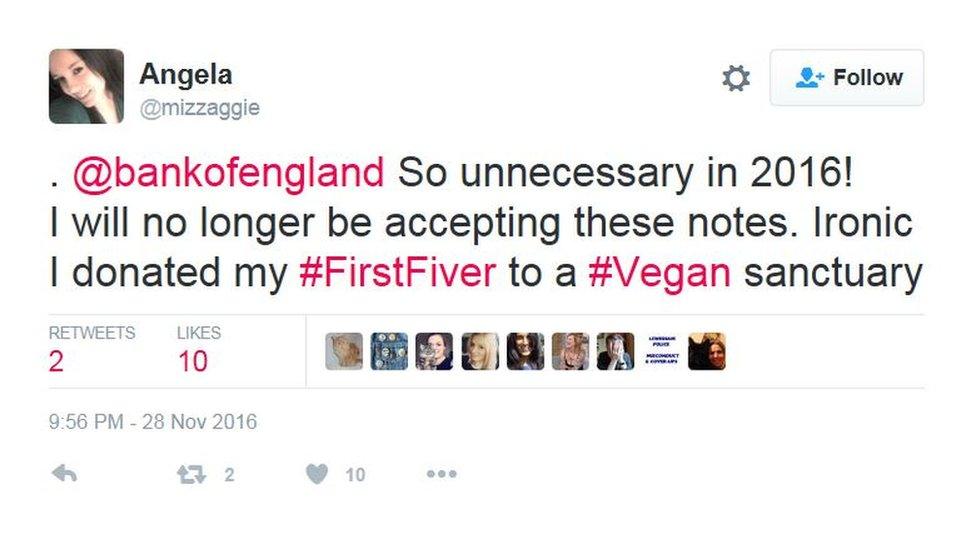
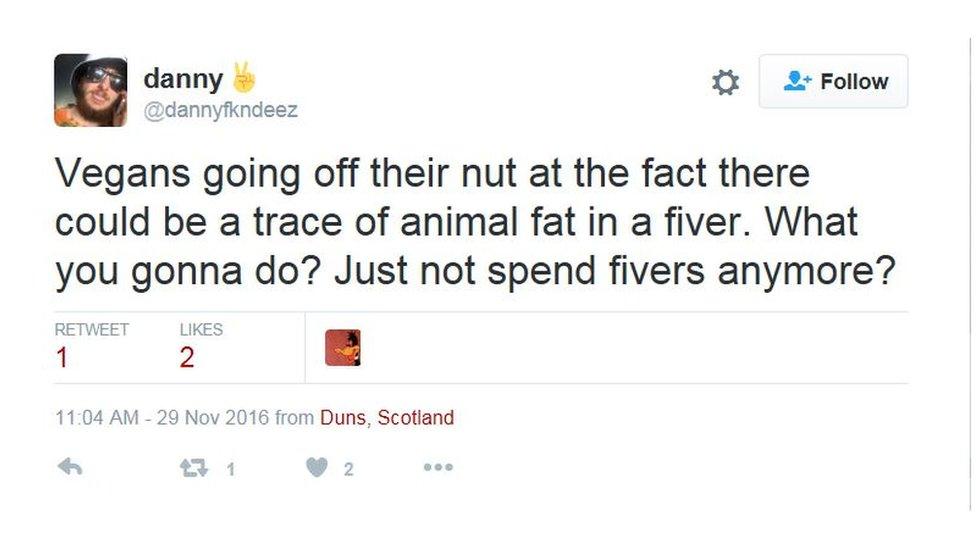
Some British Hindu leaders said they would discuss a possible ban on new five pound notes from temples.
Cows are considered sacred by Hindus, many of whom don't wear shoes or carry bags made from the skin of cattle that has been slaughtered.
Trupti Patel from the Hindu Forum of Britain says use of tallow on fivers is 'unacceptable'
Jewish leaders, whose religion also embraces several restrictions on the use of animal products, are less concerned about the new banknotes.
A spokesman for the Board of Deputies of British Jews, Simon Round, told the BBC: "The five pound notes wouldn't cause any problem to Jews unless they try to eat them.
"Jews are not allowed to consume tallow but are permitted to handle it."
The Bank of England so far has adopted a sanguine approach to the furore: "We can confirm that the polymer pellet from which the base substrate is made contains a trace of a substance known as tallow," it said in a statement.
But, so far, it has no plans to draw up a new recipe.
- Published2 June 2016
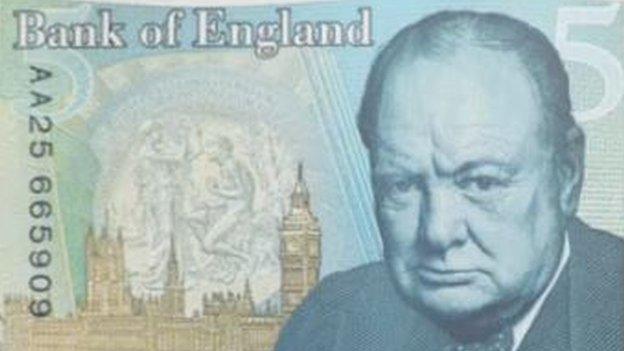
- Published23 September 2016
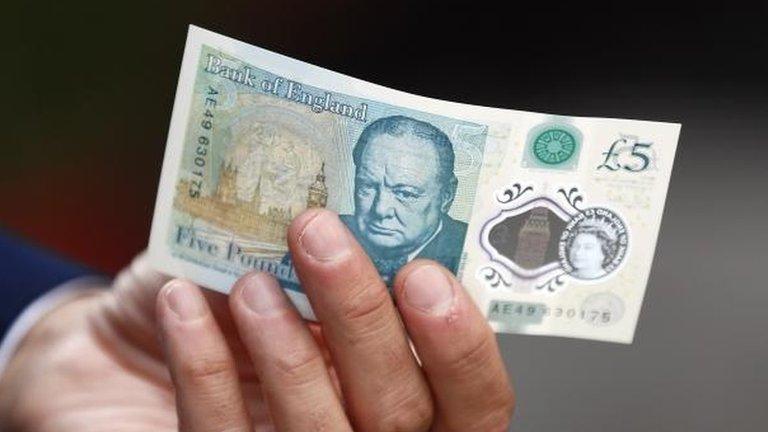
- Published13 September 2016
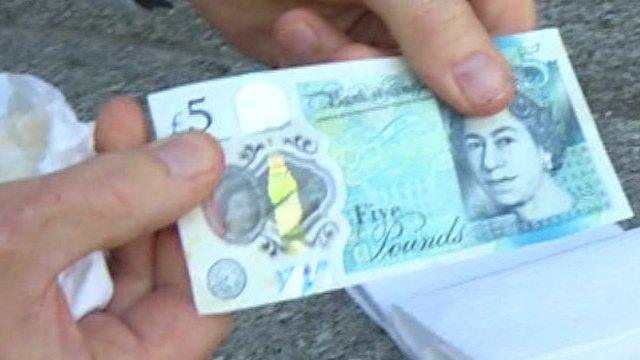
- Published1 June 2016
